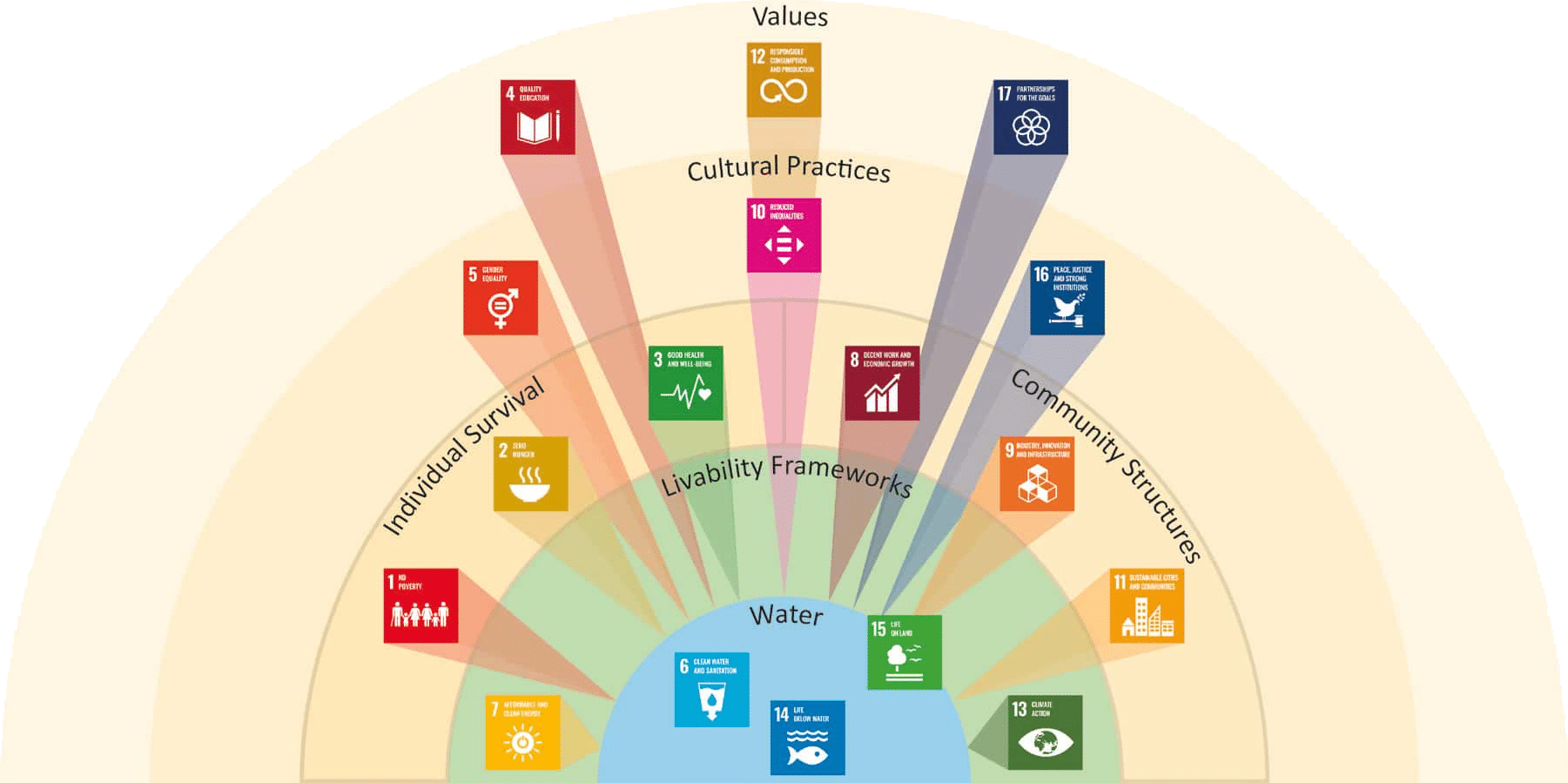

Downloads
DOI:
https://doi.org/10.58981/bluepapers.2022.1.01Published
Issue
Section
License
Copyright (c) 2022 Carola Hein

This work is licensed under a Creative Commons Attribution 4.0 International License.
How to Cite
Abstract
At a time of climate change, sea level rise, flooding, drought, and changing groundwater and rainwater patterns, water managers need to adjust their current practices and develop new approaches. Technological innovation remains a key element in adaptation and mitigation; but technological innovation is not enough. Changing water patterns will affect everyone and every structure. How we manage water depends on local conditions, spatial and social developments and cultures as well as decisions of the past. That is why water management needs to go hand in hand with sustainable practices that are connected to the context of specific places, social systems and cultures and their changes over time.
Sustainable development also requires recognizing the long-term impact of buildings and human-made structures. They may have been erected in the past for specific purposes and functions that have disappeared or are no longer welcome, yet the buildings and landscapes still exist. Sometimes they are valued cultural heritage; sometimes they are considered a nuisance, standing in the way of future development. Finally, water managers and other decision-makers may need new tools and methodologies for a holistic approach to sustainable development, which accounts for local particularities, achieves buy-in from society at large, and acknowledges historic path dependencies. As a first step toward such an approach, this chapter reflects on the UN Sustainable Development Goals through the lens of water and culture.
References
Delft University of Technology. 2021. Water, Ports, and the UNESCO Historic Urban Landscape Approach. Commissioned by the Cultural Heritage Agency of the Netherlands (RCE). Concept/script/supervision: Carola Hein; Interviews/research: Paolo De Martino, Hidde van de Rhee; Production/editing: BonteKoe Media, Paul Tekenbroek; Voice over: Michael Harrigan. https://www.youtube.com/watch?v=Jc5d8Mk47RE.
Earth Commission, Global Commons Alliance. n.d. “About Us.” Accessed July 14, 2022. https://earthcommission.org/about/
Larkin, Brian. 2013. “The Politics and Poetics of Infrastructure.” Annual Review of Anthropology 42: 327–43.
Loen, Suzanne. 2020. “Thirsty Cities: Learning from Dutch Water Supply Heritage.” In Adaptive Strategies for Water Heritage: Past, Present and Future, edited by Carola Hein, 78–103. Cham: Springer.
Lopez, Russ. 2018. “Public Health and Urban Planning: Intertwined Histories.” In The Routledge Handbook of Planning History, edited by Carola Hein, 364–74. New York: Routledge.
OECD. 2020. How’s Life? 2020: Measuring Well-Being. Paris: OECD Publishing. https://doi.org/10.1787/9870c393-en.
Renes, Hans, Csaba Centeri, Sebastian Eiter, Bénédicte Gaillard, Alexandra Kruse, Zdeněk Kučera, Oskar Puschmann, Michael Roth, and Martina Slámová. 2020. “Water Meadows as European Agricultural Heritage.” In Adaptive Strategies for Water Heritage: Past, Present and Future, edited by Carola Hein, 106–31. Cham: Springer.
UNESCO. 2019. Culture | 2030 Indicators. Paris: UNESCO.
Zwarteveen, Margreet Z., and Sara Ahmed. 2012. “Gender, Water Laws and Policies: An Introduction.” In Diverting the Flow: Gender Equity and Water in South Asia, edited by Margreet Z. Zwarteveen, Sara Ahmed and Suman Rimal Gautam, 67–84. New Delhi: Zubaan.


